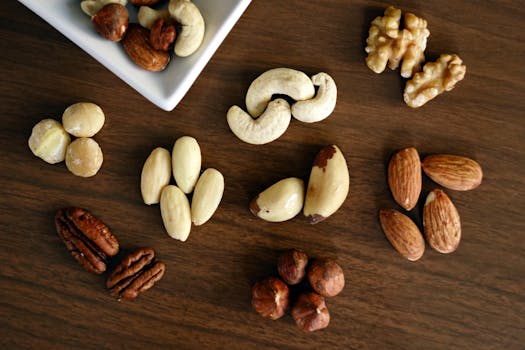It’s hard to resist those puppy-dog eyes staring at your In-N-Out grilled cheese sandwich. But before you share a bite with your furry friend, it’s important to know whether it’s safe for dogs to eat this cheesy treat. While some human foods can be safely shared in moderation, others can lead to health issues for your dog. Let’s dive into whether In-N-Out grilled cheese sandwiches are dog-friendly and what you should consider before sharing.
🧀 What’s in an In-N-Out Grilled Cheese?
To understand if an In-N-Out grilled cheese is safe for dogs, we first need to look at its ingredients. An In-N-Out grilled cheese typically includes:
- American cheese slices
- Toasted buns
- Optional toppings like lettuce, tomatoes, onions, and spread
While these ingredients might seem harmless, there are some red flags for your dog’s health. Let’s break it down.
🐕 Can Dogs Eat Cheese?
Cheese is one of the main components of a grilled cheese sandwich, so it’s important to assess its impact on dogs. Many dogs can eat small amounts of cheese without issues, but there are a few things to keep in mind:
- Cheese is high in fat, which can contribute to obesity and pancreatitis if consumed in excess.
- Some dogs are lactose intolerant, meaning they may experience digestive upset after eating cheese.
- Processed cheeses, like the American cheese used in In-N-Out grilled cheese, often contain added sodium and preservatives that aren’t ideal for dogs.
If your dog has never had cheese before, it’s best to introduce it in very small amounts and monitor for any signs of intolerance, such as diarrhea or vomiting.
🍞 Are Toasted Buns Safe for Dogs?
The buns used in an In-N-Out grilled cheese are made from white bread. While bread isn’t toxic to dogs, it’s also not particularly nutritious. In addition:
- White bread is high in refined carbohydrates, which can contribute to weight gain.
- Some dogs may have sensitivities to gluten, a protein found in wheat-based bread.
Small pieces of plain bread are unlikely to harm your dog, but it’s best to avoid making it a regular part of their diet.
🥗 What About the Optional Toppings?
In-N-Out grilled cheese sandwiches often include optional toppings like lettuce, tomatoes, onions, and spread. Here’s how these ingredients affect dogs:
- Lettuce: Safe in small amounts, though it offers little nutritional value.
- Tomatoes: The ripe fruit is safe, but unripe tomatoes and tomato plants can be toxic to dogs due to solanine.
- Onions: Toxic to dogs in any form (raw, cooked, or powdered) as they can cause hemolytic anemia.
- Spread: Contains ingredients like oils, spices, and possibly garlic or onion powder, which can be harmful to dogs.
If your In-N-Out grilled cheese includes any of these toppings, especially onions or spread, it’s best not to share it with your dog.
⚠️ Risks of Feeding Your Dog In-N-Out Grilled Cheese
While a small nibble of plain grilled cheese might not harm your dog, there are risks to consider:
- High fat content can lead to obesity and pancreatitis over time.
- Added salt and preservatives in processed cheese may strain your dog’s kidneys.
- Onions or onion powder in the sandwich can be toxic, even in small amounts.
- Dogs with food sensitivities or allergies may experience digestive upset.
If your dog accidentally eats a significant amount of an In-N-Out grilled cheese, monitor them for symptoms like vomiting, diarrhea, lethargy, or loss of appetite, and contact your vet if needed.
🐾 Healthier Alternatives to Share with Your Dog
If you’re tempted to share a snack with your dog, there are healthier and safer options than an In-N-Out grilled cheese. Consider these dog-friendly treats instead:
- Plain, unsalted cheese like mozzarella or cottage cheese
- Small pieces of cooked, unseasoned chicken or turkey
- Fresh fruits like apple slices (without seeds) or blueberries
- Vegetables like baby carrots or cucumber slices
These treats are not only safer but also provide nutritional benefits for your dog.
🐶 What to Do if Your Dog Eats an In-N-Out Grilled Cheese
If your dog sneaks a bite of your In-N-Out grilled cheese, don’t panic. Here’s what you should do:
- Check the ingredients to see if there were any harmful components, like onions or spread.
- Monitor your dog for any signs of distress, such as vomiting, diarrhea, or lethargy.
- If your dog ate a large amount or shows symptoms of illness, contact your vet immediately.
In most cases, a small amount of grilled cheese without toxic ingredients will not harm your dog, but it’s always better to err on the side of caution.
FAQs
Can dogs eat plain cheese?
Yes, in moderation. Plain cheese can be a tasty treat for dogs, but avoid processed or salty cheeses.
Are onions toxic to dogs?
Yes, onions are toxic to dogs in any form and can cause serious health issues like anemia.
What are the symptoms of lactose intolerance in dogs?
Symptoms include diarrhea, gas, bloating, and vomiting after consuming dairy products.
Can dogs eat tomatoes?
Ripe tomatoes are safe for dogs in small amounts, but unripe tomatoes and tomato plants should be avoided.
What should I do if my dog eats a lot of grilled cheese?
Contact your vet if your dog eats a large amount or shows symptoms like vomiting or lethargy.
References
Book a $49 online vet consultation at https://www.dialavet.com for fast, expert advice.























